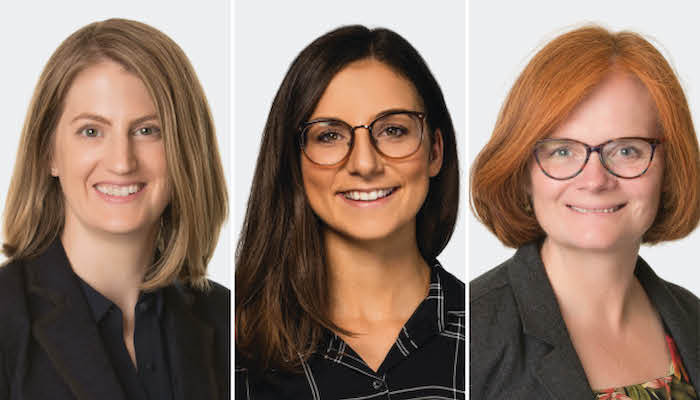International Day of Women and Girls in Science

Here at HEI, and across McMaster University, we do not need to look far to find inspirational women working in STEM.
Friday, February 11 marks the United Nations’ International Day of Women and Girls in Science, and the Department of Health Research Methods, Evidence, and Impact (HEI) invites its members, along with their research partners and collaborators, to recognize and celebrate the contributions female students and researchers are making to advance human and societal health and well-being.
Here at HEI, and across McMaster University, we do not need to look far to find inspirational women working in STEM. Here are the reflections and perspectives of just a few:
I often tell people that I feel incredibly lucky to have had consistent mentorship from brilliant, strong, successful and kind women in my field. To name two (of many), Dr. Kathy Georgiades has been my MSc and PhD supervisor for over six years, and Dr. Catharine Munn has provided me with mentorship in various capacities since my undergraduate degree in nursing (over 8 years). Throughout my training, I have never felt “less-than” because I am a woman. I am grateful to be surrounded by women and non-women leaders who support my personal and professional growth, think of me and my expertise when opportunities arise, and make me feel included and valued. That said, I recognize and worry about the future challenges of continuing to excel in my field beyond my current graduate school experiences. I am grateful for mentors who lead by example and take the time to discuss the nuances of how to navigate academia and science as a woman. I hope that all mentors, regardless of gender, take the time to discuss these realities with their students. I also hope that we can continue striving toward a world and workplace where these discussions do not need to happen at all.
- Jillian Halladay, PhD candidate, Health Research Methodology, HEI (centre in image)
On this International Day of Women and Girls in Science, I would like to acknowledge the unprecedented challenges that many women have faced over the past two years due to the COVID-19 pandemic. The pandemic has disproportionately impacted the careers and training of women in science, and I recognize that many of us are struggling to keep up with our work while coping with extra caregiving and parenting challenges. Early in my research training, I was supervised by several incredible women in science, and they all demonstrated to me that I could be a successful independent scientist and maintain a healthy work-life balance while challenging the gender gap. This has been incredibly difficult for many women, and women continue to be excluded from research activities and face numerous barriers to participation. The COVID-19 pandemic has made this situation so much worse since many of the necessary supports have not been available. While I recognize things are incredibly hard right now, I am hopeful that things will start to improve soon, and I encourage all women to not give up! I am very fortunate to work with many extremely supportive colleagues and staff, and I would like to thank all of them for helping women in science succeed. Lastly, I would like to recognize the amazing work of all the women on my research team, including Yulika Yoshida Montezuma, Vanessa De Rubeis, Jayati Khattar and Erin Smith. These women are all accomplishing great research and science every day!
- Dr. Laura Anderson, associate professor, HEI (left in image)
Our pathway to success for equality for women and girls in science is to dismantle barriers and create opportunities for them to discover the world of science. It is important that we mentor and support each other and give a platform to women from equity seeking groups as they navigate science education and careers. Representation and role models matter. I am proud to be a woman in science, particularly in the field of health informatics, digital health, and research. As an educator, I am honoured to foster the learning and skills development of my female students so that they may lead by example and pass their passion and knowledge to the next generation.
- Dr. Cynthia Lokker, assistant professor, HEI (right in image)
The 2021-2022 academic year has proven to be a busy one for HEI’s female researchers. Her are just some of the highlights of the past six months:
Greater body fat a risk for reduced thinking and memory ability
Featuring Dr. Sonia Anand, professor, HEI
McMaster researcher finds high rates of trauma for mothers and babies with forceps and vacuum deliveries
Featuring Dr. Giulia Muraca, assistant professor, HEI
Why do people use cannabis during pregnancy and breastfeeding?
Featuring Dr. Meredith Vanstone, associate professor, HEI
Prescribing the abortion pill without restrictions is safe and effective
Featuring Dr. Liz Darling, associate professor, HEI
HEI community members named Canadian Academy of Health Sciences fellows
Featuring Dr. Maureen Markle-Reid, professor, HEI, and Dr. Maureen Dobbins, professor, HEI
